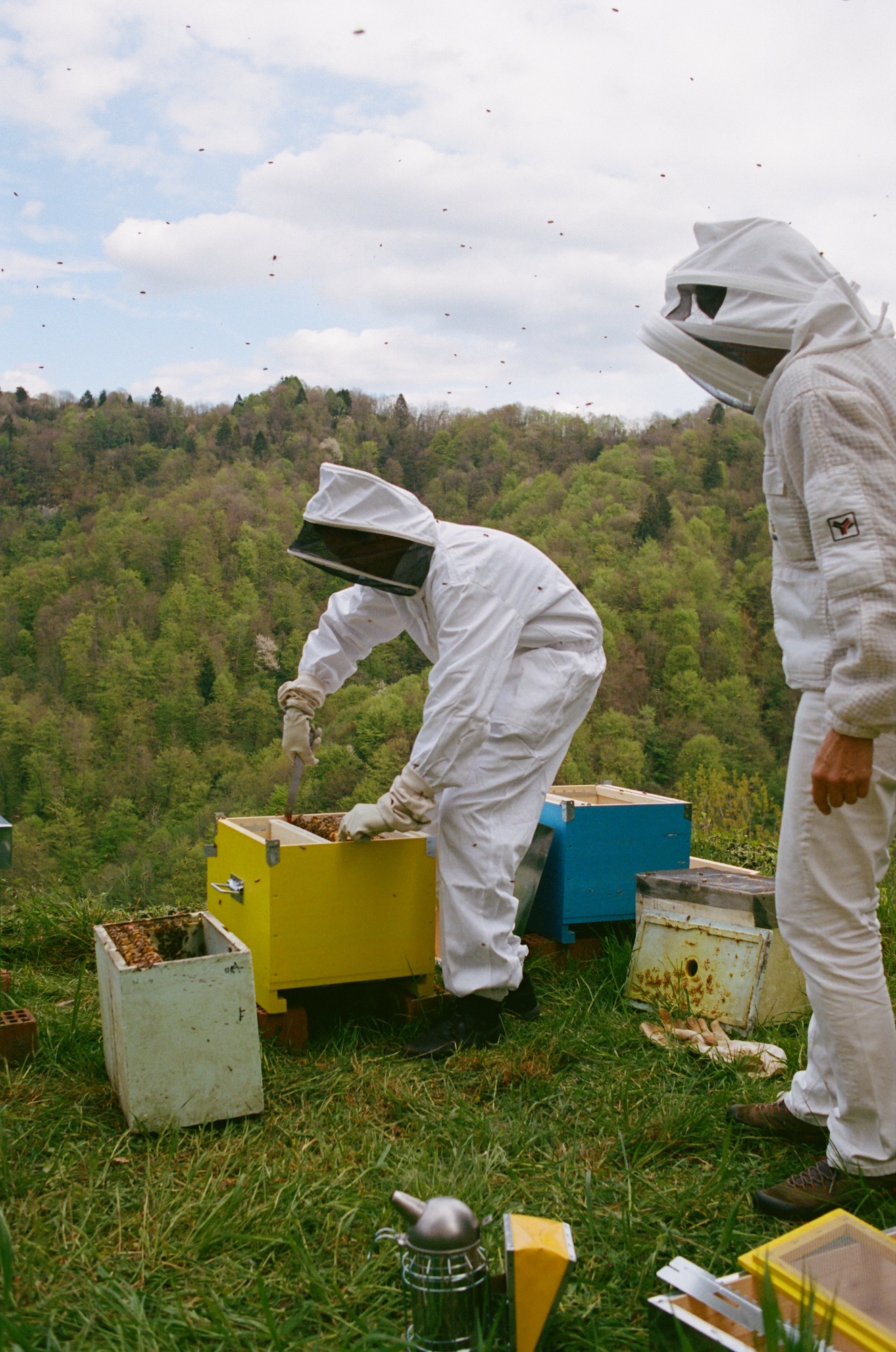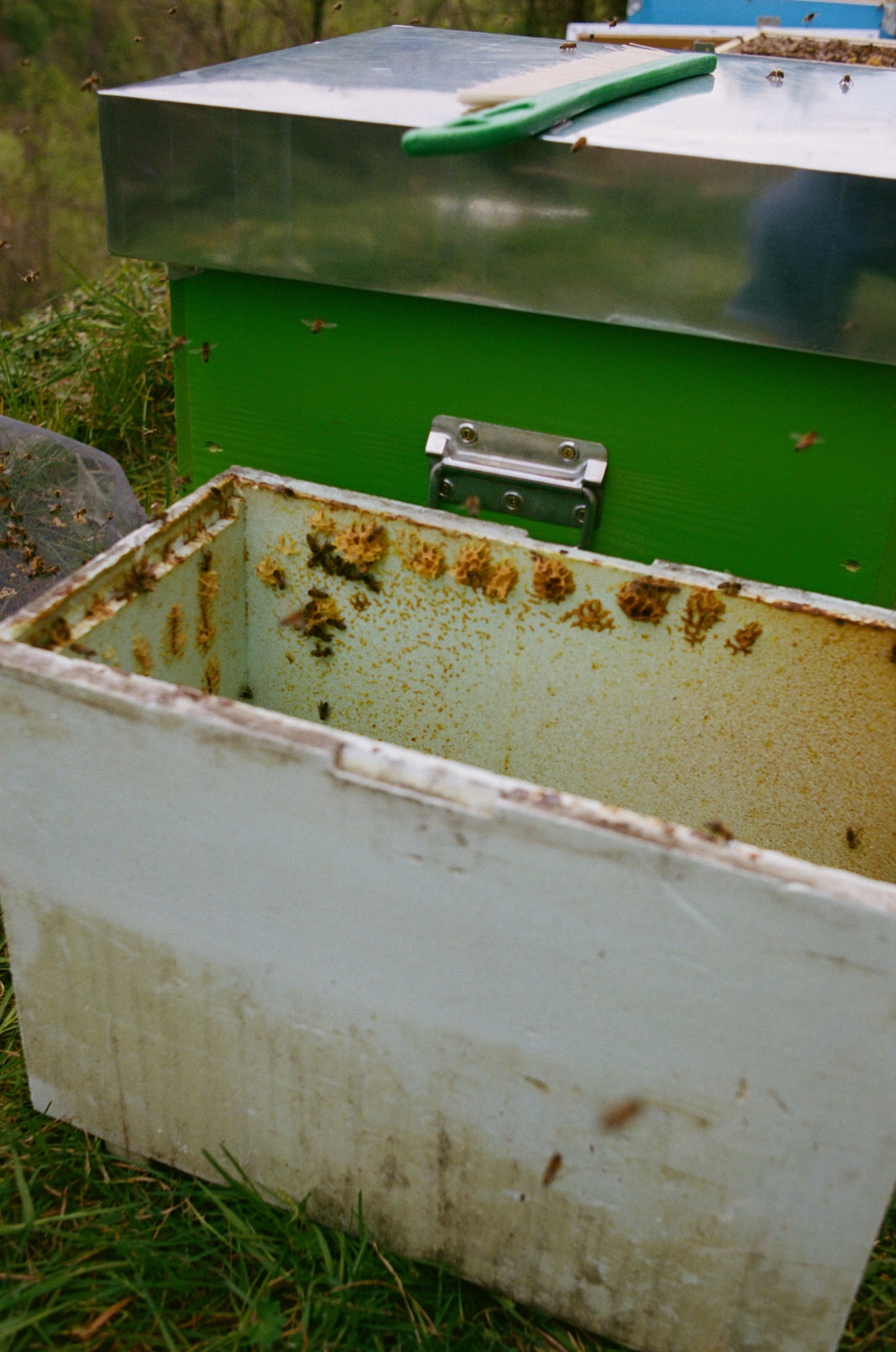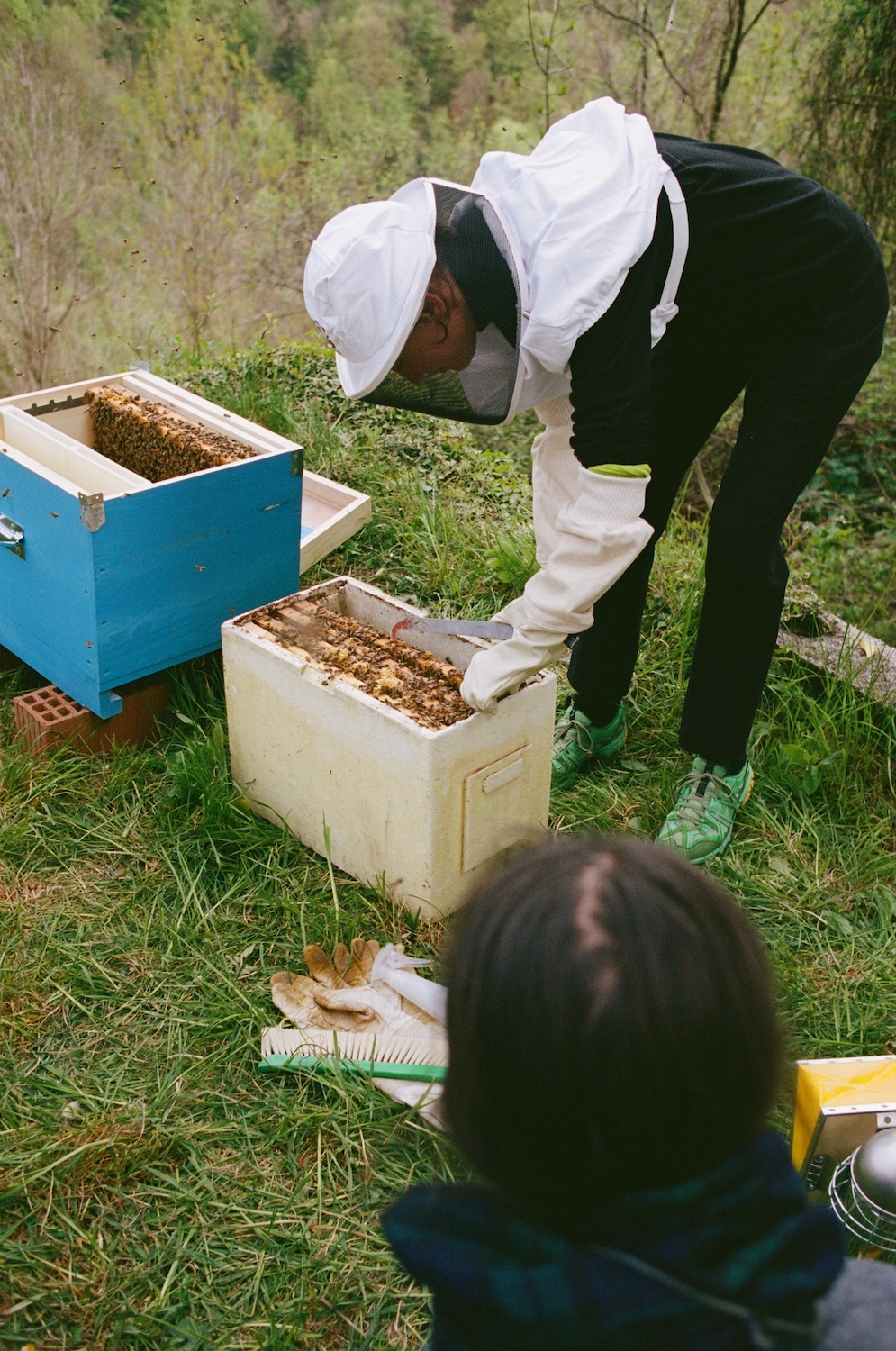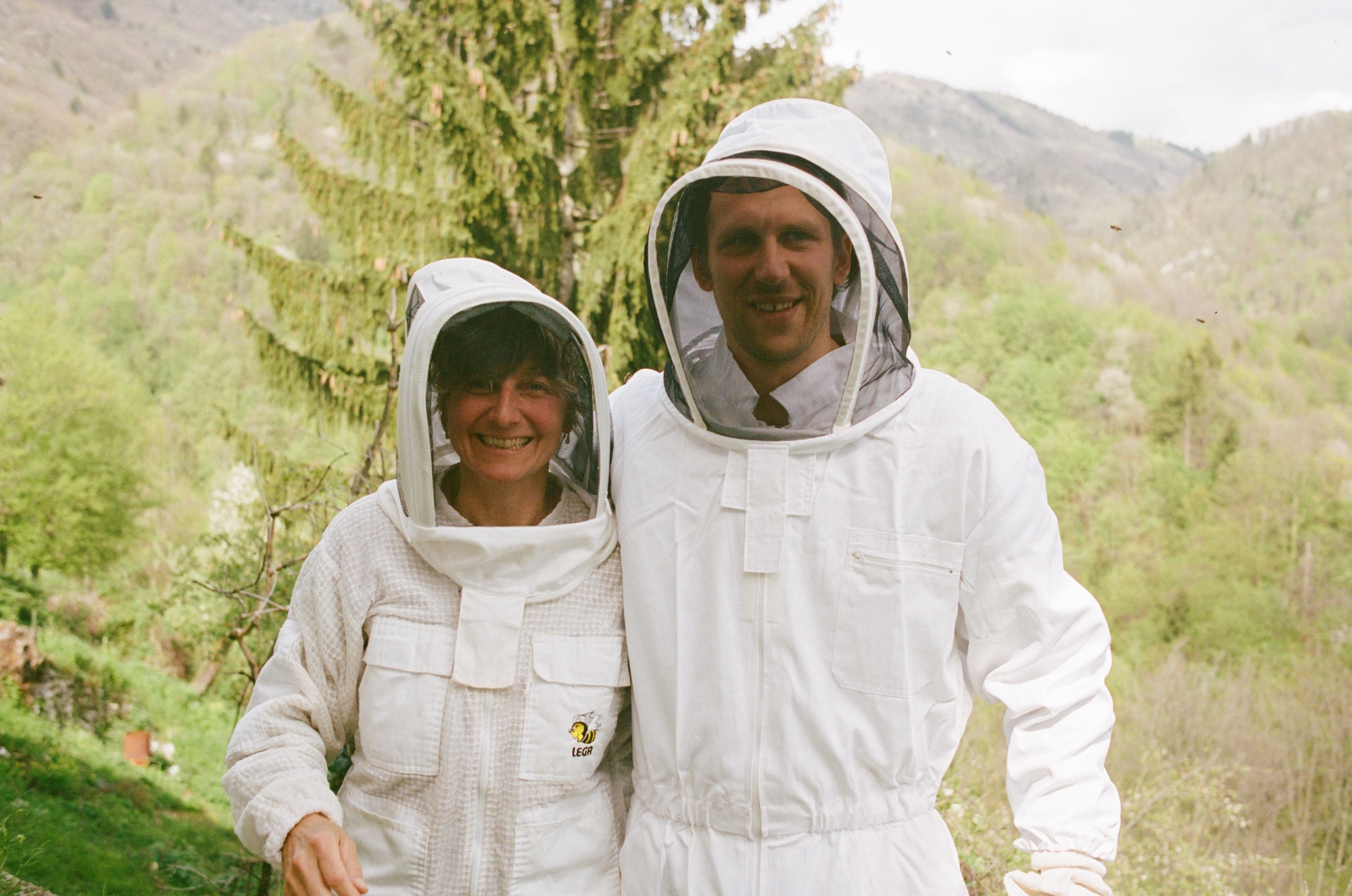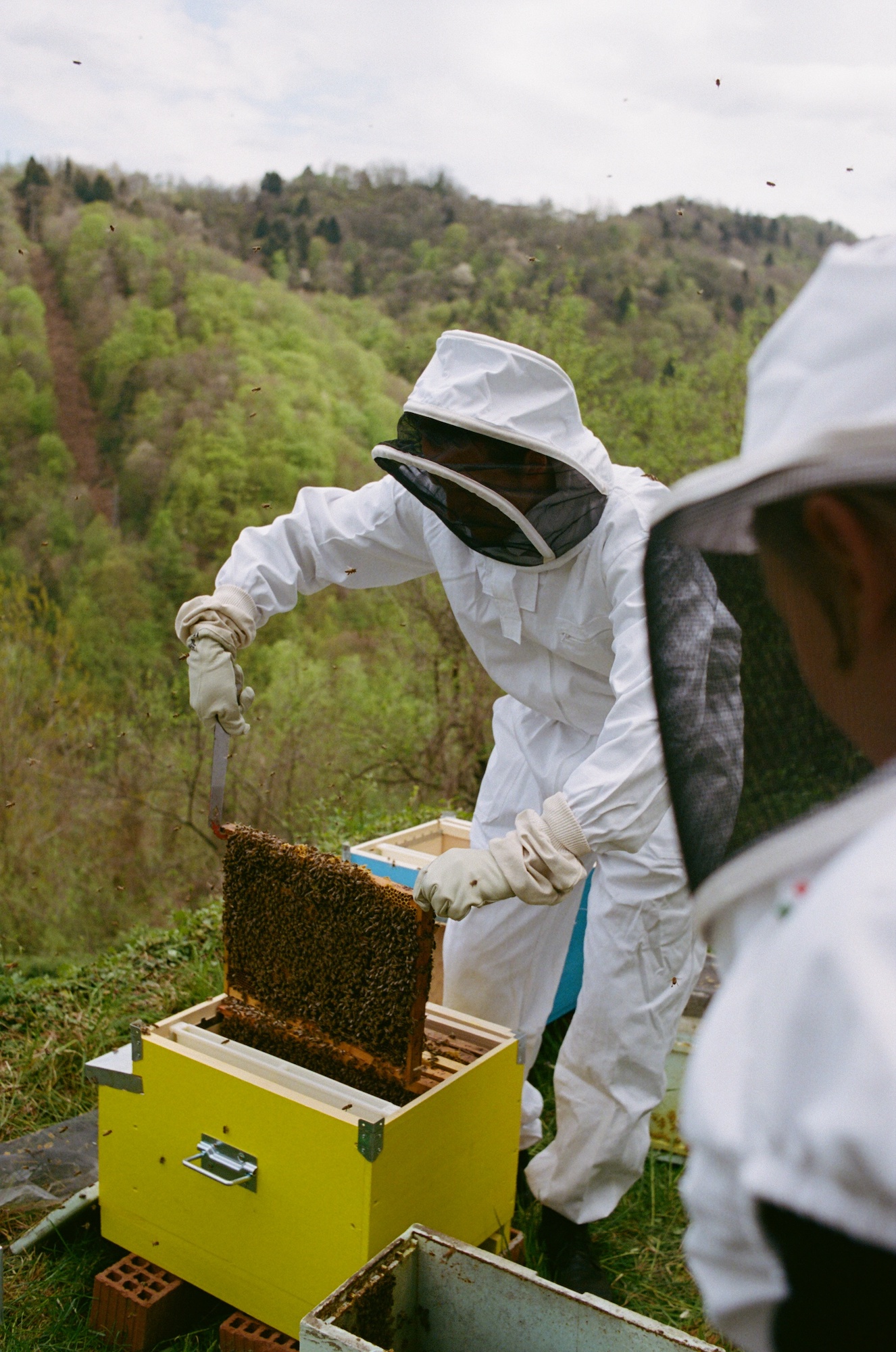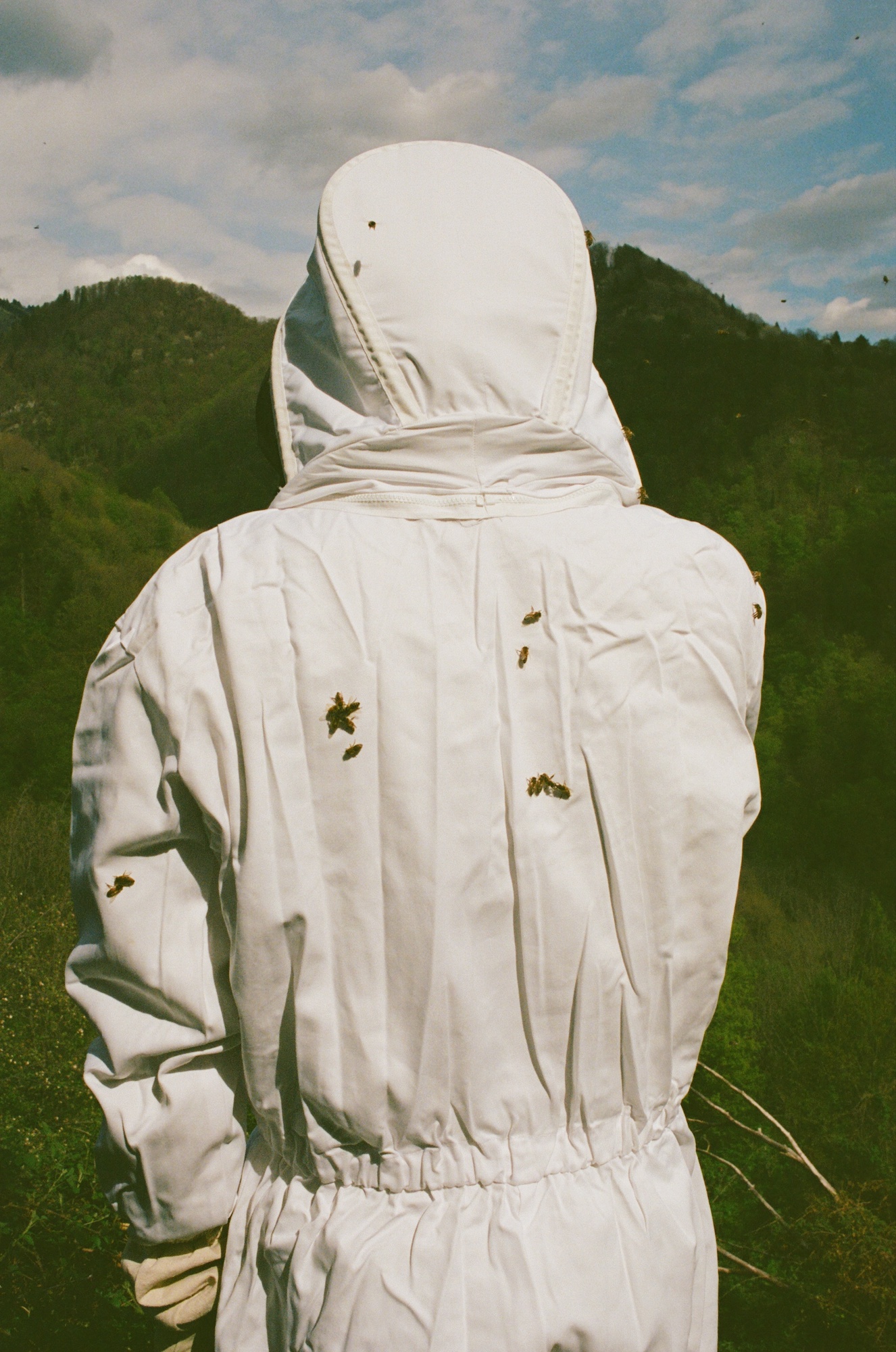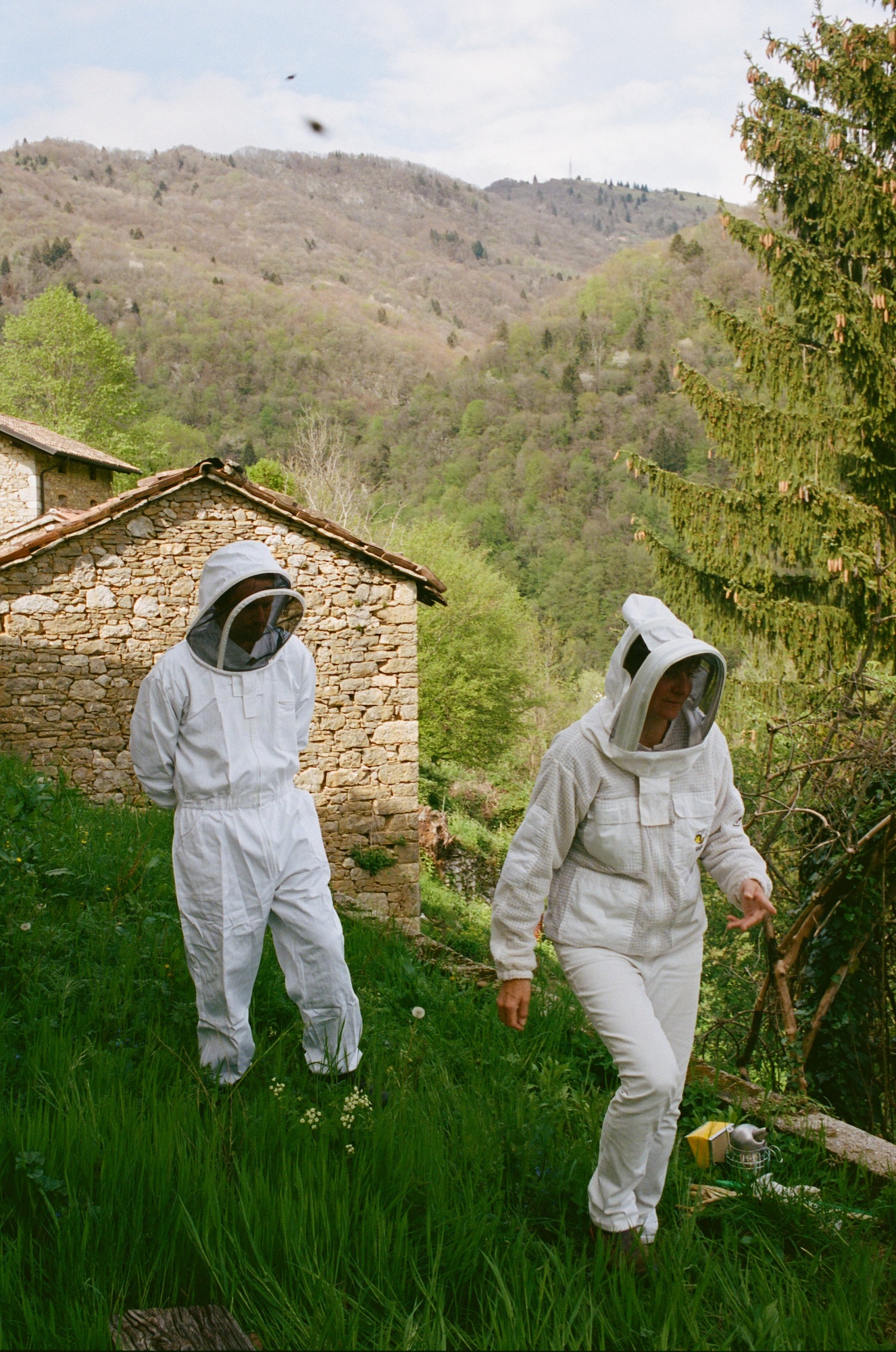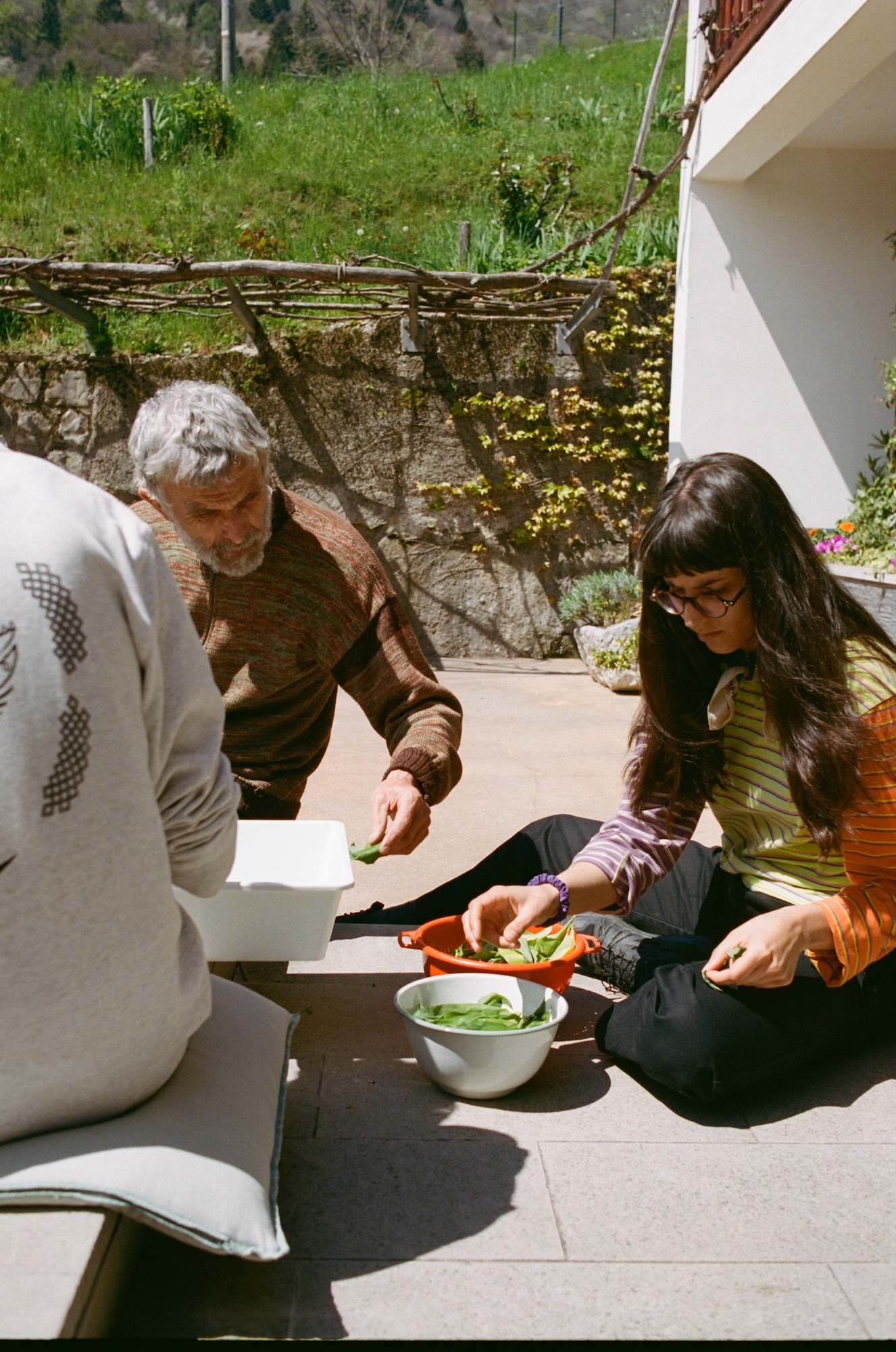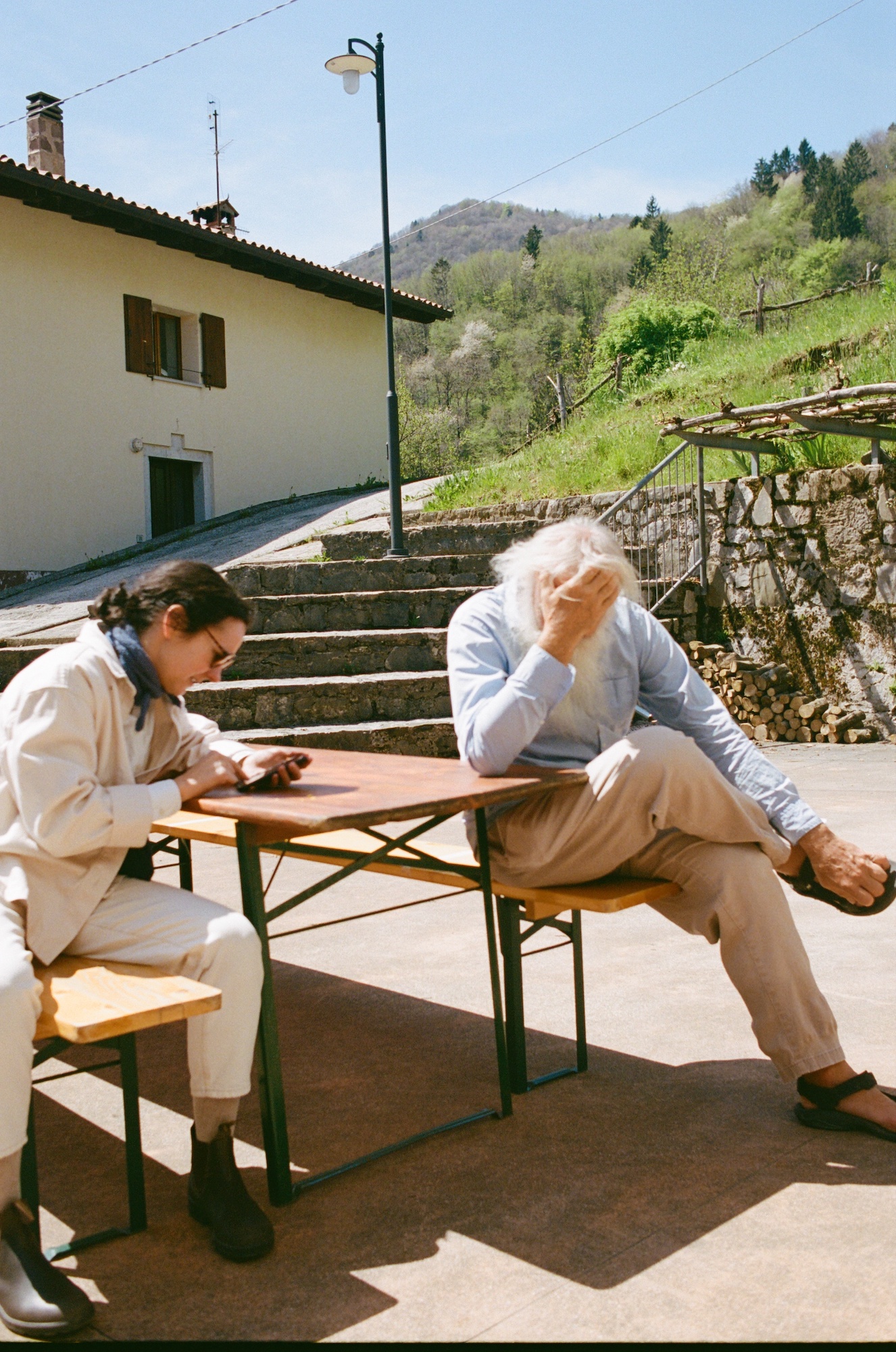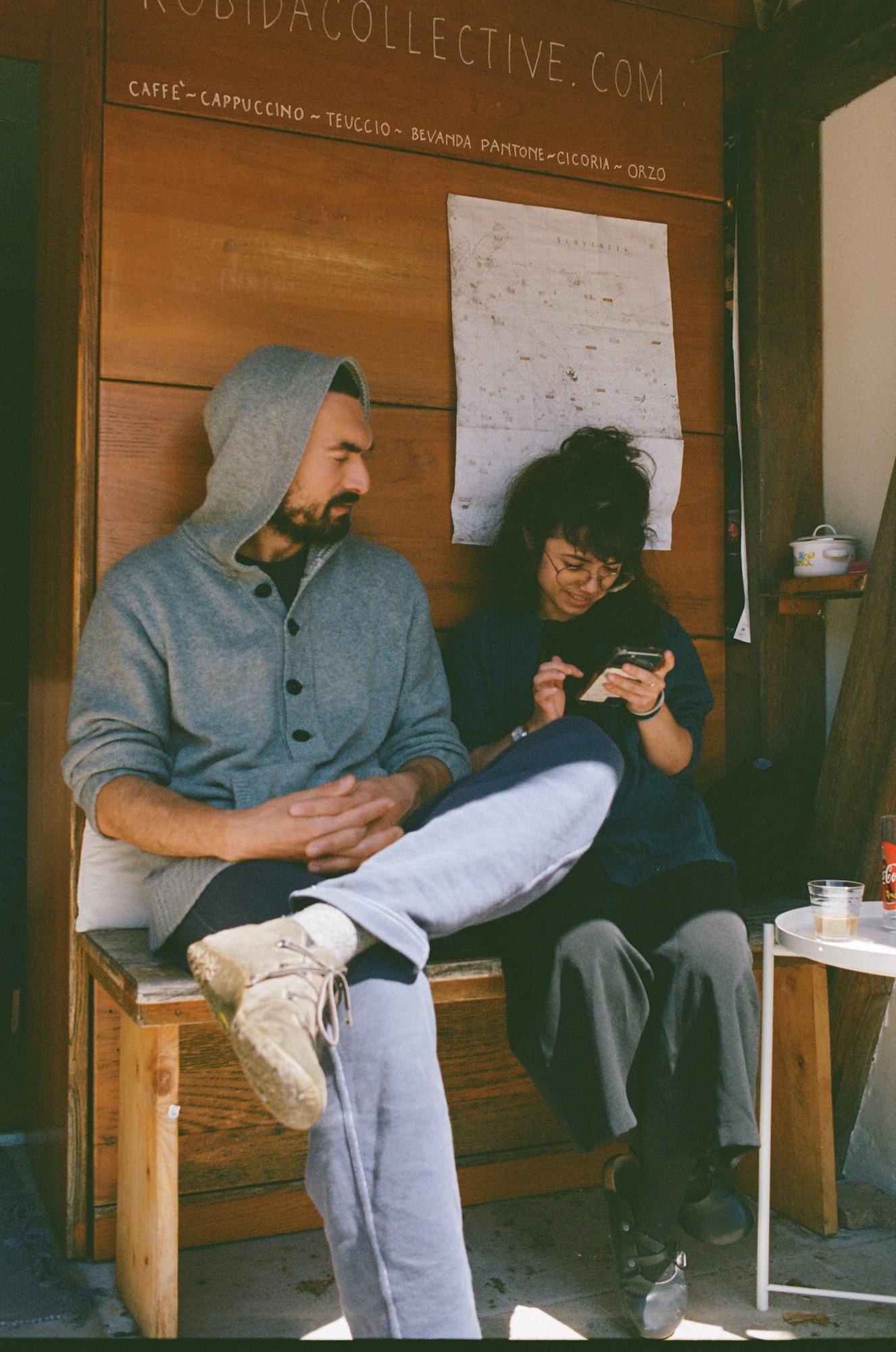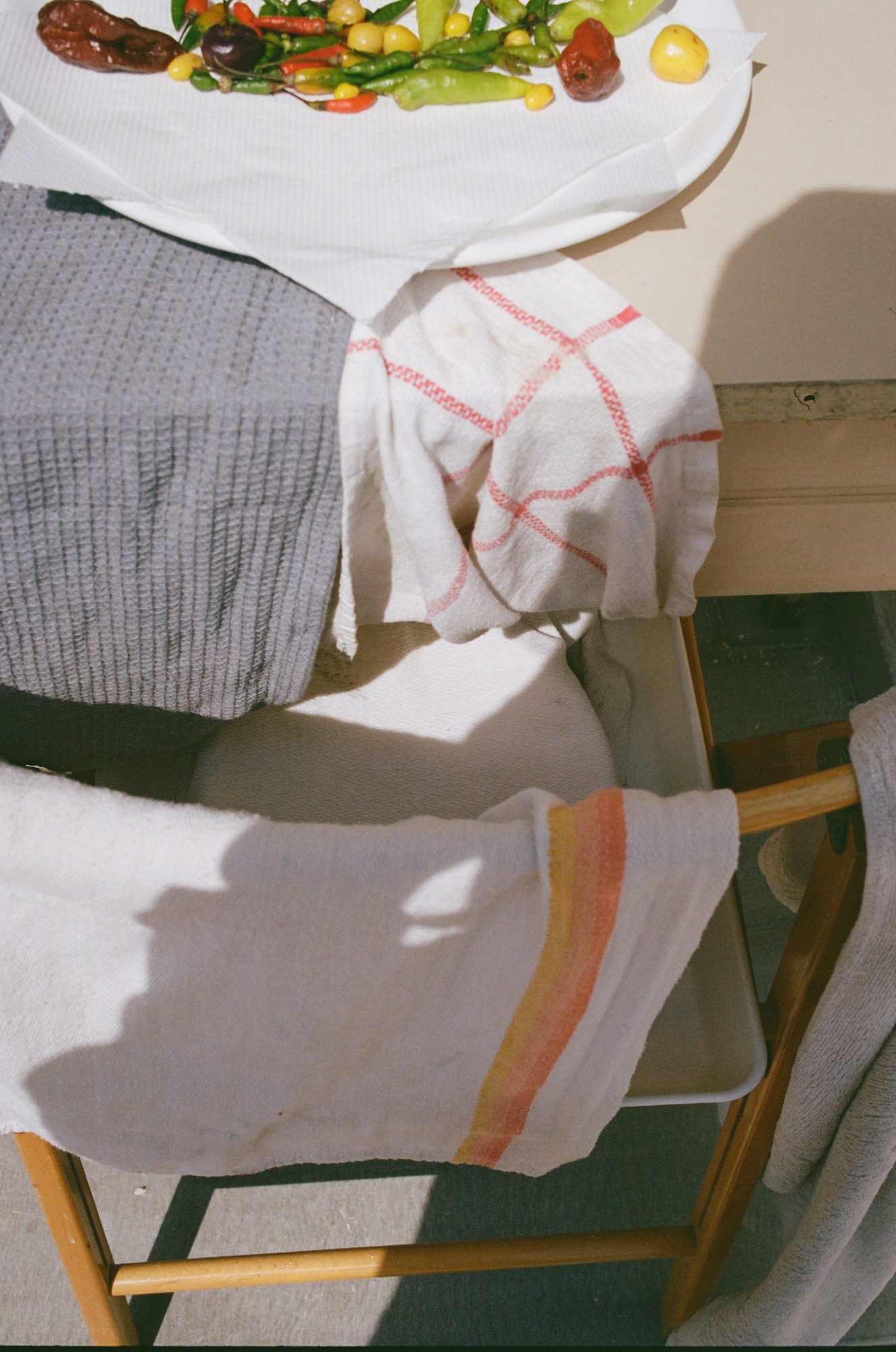We are who we are ~ the flowers of the pollen we feed on
– Pierre Barouh
Walking down to the river, buzzing is already all around, bumblebees dipping in and out of spring-summer flowers along the way until their sound is taken over by rushing water on rock. A honeybee hive is something different and the same as this scattered hovering and collecting — a concentrated hub of bees carrying energy back and forth — working, maintaining, transforming.
The evening before picking up three families of bees miles away, there was a sense of excitement and considered, careful anticipation, aware of the complexity of their constellation and the tone of the task at hand. A quiet call for us the next morning to come visit the 30.000 new inhabitants of the village. They were adjusting to the environment in the cool shade of one of the houses before being carried to their hive homes in the valley. There was a sudden and touching transformation of the inhabitants already present into caretakers of a new sort — brothers and sisters of bees. With the support of all participants, they observed and adapted to this new relation with dedication, concentration and attention, knowing that the bees can sense.
“Gentleness lies in between a caress and the release of fragility that is both moved and preserved in hospitality”
– Toni Hilderbrandt in Responding to Lament with Gentleness, Reading Scholem in Constellation
Under the magnetic and passionate guidance of Erika Mayer we learned how to read the hive, to tune into the buzzing spirit and to observe the landscape from the perspective of the bees. How they utilise trees as vertical fields for pollination, which flowers appeal to them and how they guide each other home. Questions like: Are honey bees wild animals? Domestic animals? Pets? What would be our relation to them? It is ephemeral, she said — memories of a landscape reflected in honey. She explained how the hive reflects the landscape and that by connecting to the bees, you are in direct connection to nature.
Everyone had some kind of bee story to share and reflect on — many stings, some poems, some recent and some faraway, some joyful and some tragic. We also listened close to the story of the bees sitting beside their hives, hearing, sensing and feeling them work beside us at the edge of the valley. In between our learning, listening and sharing activities we folded dough — pockets of scattered but structured time and energy gathered and shaped into bread to feed our human hive, with the good honey on top of many a slice of course.
At the end of April, Robida hosted a workshop as part of Academy of Margins: "The Village as Ecological Entity — Introducing bees in Topolò" with the intention of extending care-taking and agency giving exercises within the landscape to plants and non-human animals. Thank you to Robida Collective, Erika, Rosario and all the participants for a vibrant, sensitive environment where it was possible to each feel present and connected to all the rest.
All the photos, as well as the text, are by Sasha van Aalst!

